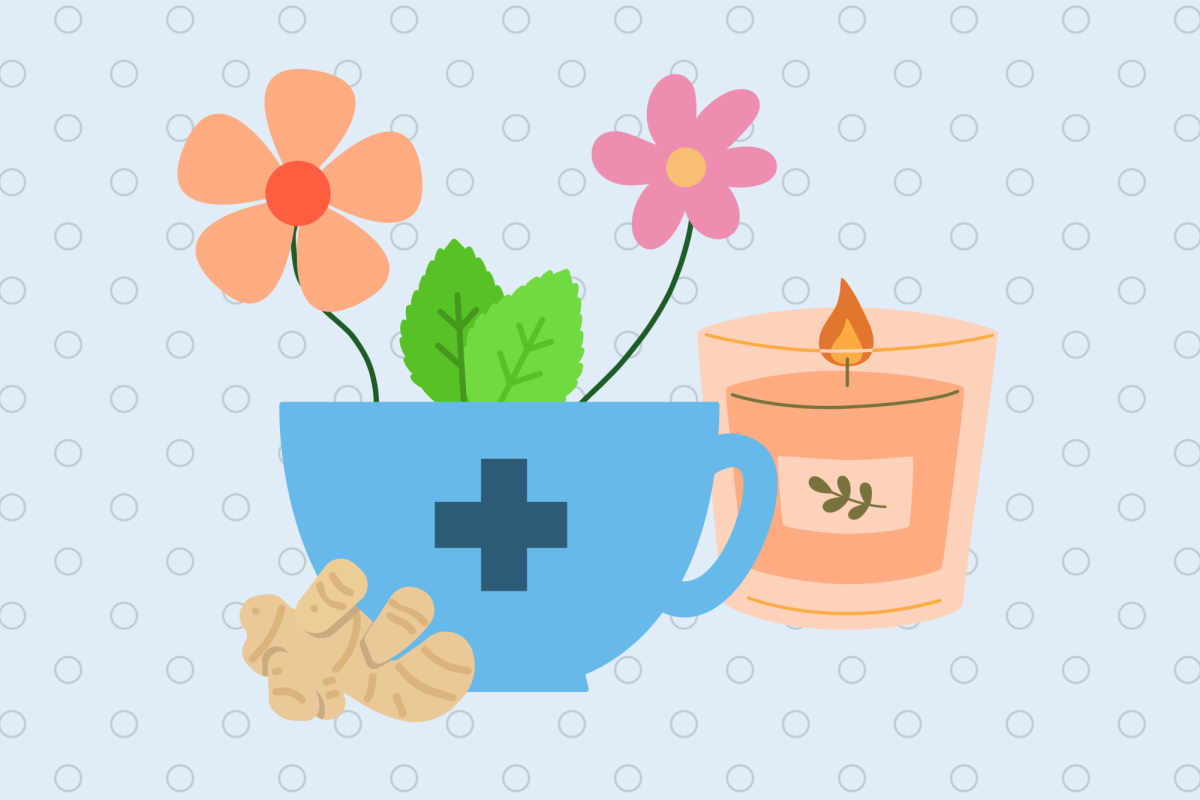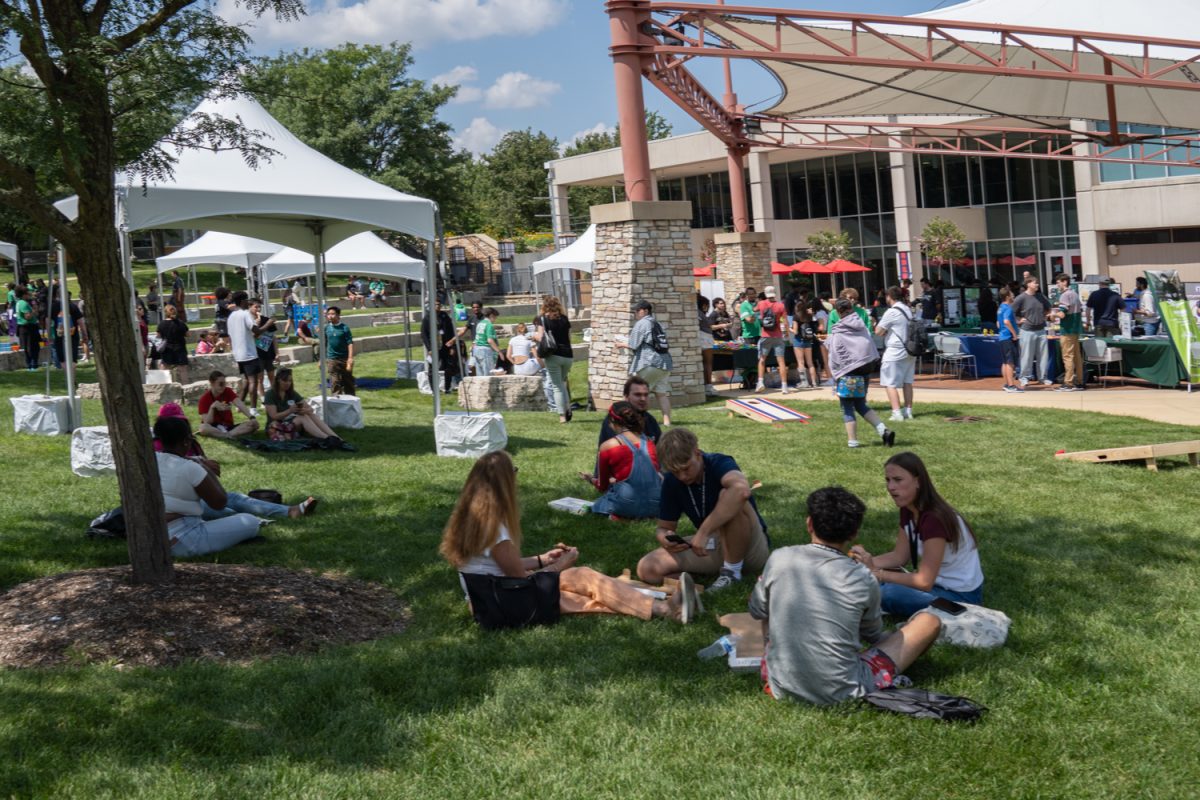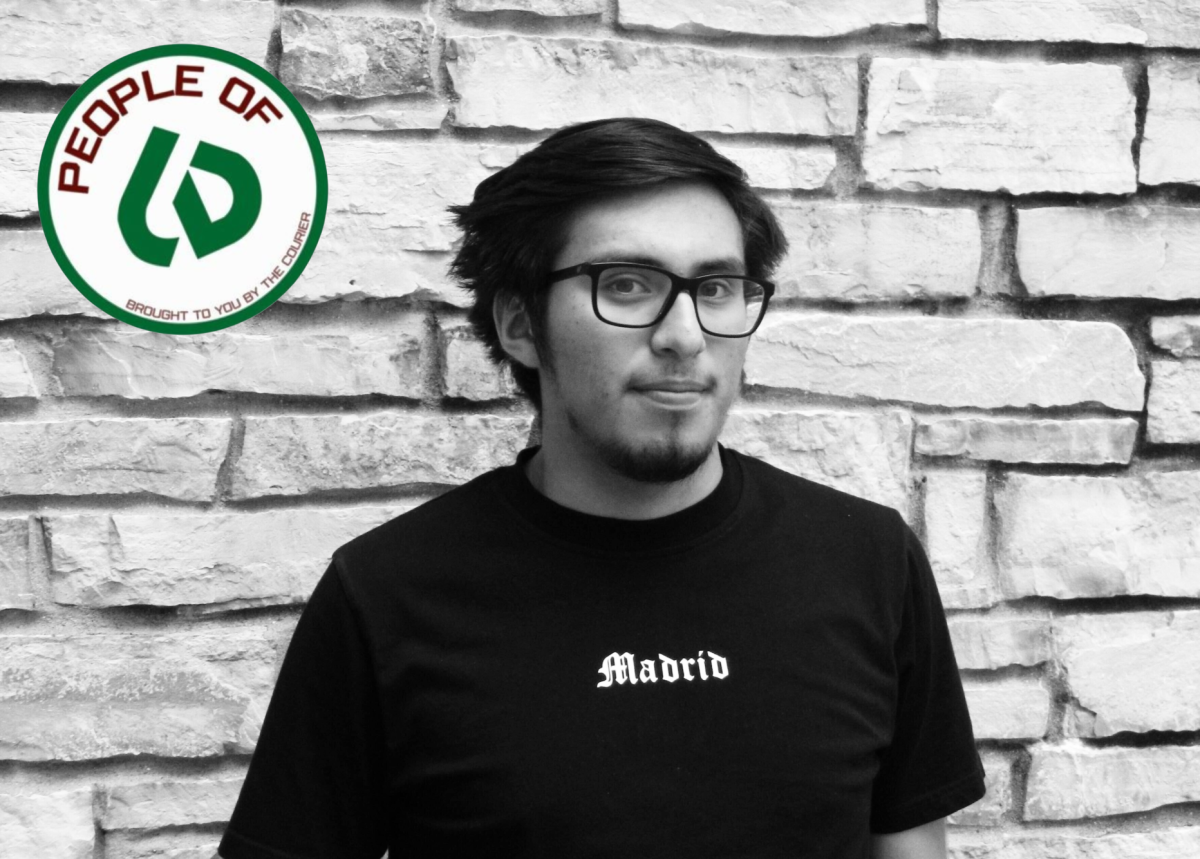For centuries, humans around the globe have used natural remedies to cure various ailments, including herbs, supplements and massage therapy. In today’s world of advanced mainstream medicine, do such medicinal practices maintain a place?
Complementary medicine refers to alternative medicine practices used in conjunction with conventional medicine, whereas alternative medicine refers to medicinal practices used in place of conventional treatment methods.
Daniel Mikhail, a computer science student at College of DuPage, recounted his own experience with complementary medicine practices. He recalled his mom trying out an herbal weight-loss tea; Mikhail also mentioned he drinks various teas though he uses it to calm his senses, expressing his mildly favorable opinion on the teas and their effects.
“I have ADHD, so that’s why I drink tea, just to help me calm down,” he said. “I drink any kind of tea— nothing special at all— just bag tea. I feel more healthy [when drinking it].”
The popularity of complementary and alternative medicine is increasingly on the rise. A study conducted by the National Institutes of Health’s National Center for Complementary and Integrative Health (NCCIH) found that the use of complementary and alternative medical practices such as massage therapy, chiropractic care and naturopathy saw a 17.5% increase from 2002 to 2022. A report from Healthline states alternative treatment is “becoming less alternative” due to this popularity, citing reasons for this popularity such as more time between patients and practitioners, better connections with unconventional physicians and a desire for a holistic approach to health.
Beth Kirkpatrick, a biology professor at College of DuPage, specializes in botany and ethnobotany. She pointed out how natural medicines are used prominently in conventional medicine and can go hand in hand while also clarifying that herbal medicines are not always guaranteed to be the cure-all, stressing the importance of conducting scientific experiments to explore a plant’s potential effects.
“We do find new medicines from plants that are used to treat things like cancer,” she said. “Some plants have been investigated and have shown that they actually do have medical benefits. Some of it is just in your head. You think it’s got medical benefits, so you feel better if you eat, drink or rub it.”
Kirkpatrick noted the importance of viewing social media content that promotes remedies with discretion, emphasizing the importance of taking caution and conducting proper research before trying anything.
“I know social media has a big effect on people, especially the younger they are,” she said. “Just because it’s out there and people say they use it, it must be safe. Not true either. A lot of plants actually have toxic properties. And, depending on how you’re using them, it can be very toxic. Or it could not. Some are OK to ingest, some simply should be rubbed on the outside of your body, and they’re great.
“I recommend they research [remedies],” she said. “There are books out there that have herbal remedies that you can look up and they have, like the recipe, how much of this plant that plant, how do you do it? How do you cook it? Do you make a paste? You make something you drink. You make a pill. Probably if you’re just putting it on the outside, it’s safe.”
Alternative and complementary treatments come with their unique downsides in the realm of medicine and science, according to a 2023 study. Many alternative medicine practices are not government-regulated and have not been extensively studied, therefore scientific backup for these practices can not be ensured a lot of the time. There is even a risk of alternative and complementary medicine treatments interacting with conventional medications and treatments in a way that renders all the treatments ineffective or even harmful.
Herbal supplements, such as teas, are the most prevalently used form of unconventional treatment. An online survey from 2021 found that 24% of its respondents use or had used “herbal medicine, supplements, or teas,” ranking higher in popularity than other survey categories that included chiropractic medicine, acupuncture and homeopathy.
Mikhail cited the importance of staying consistent with any reliable, legitimate remedy, not only to see results but to maintain those results.
“If you do take it all the time, [and] then you feel better,” he said. “You just got to take it each day.”









